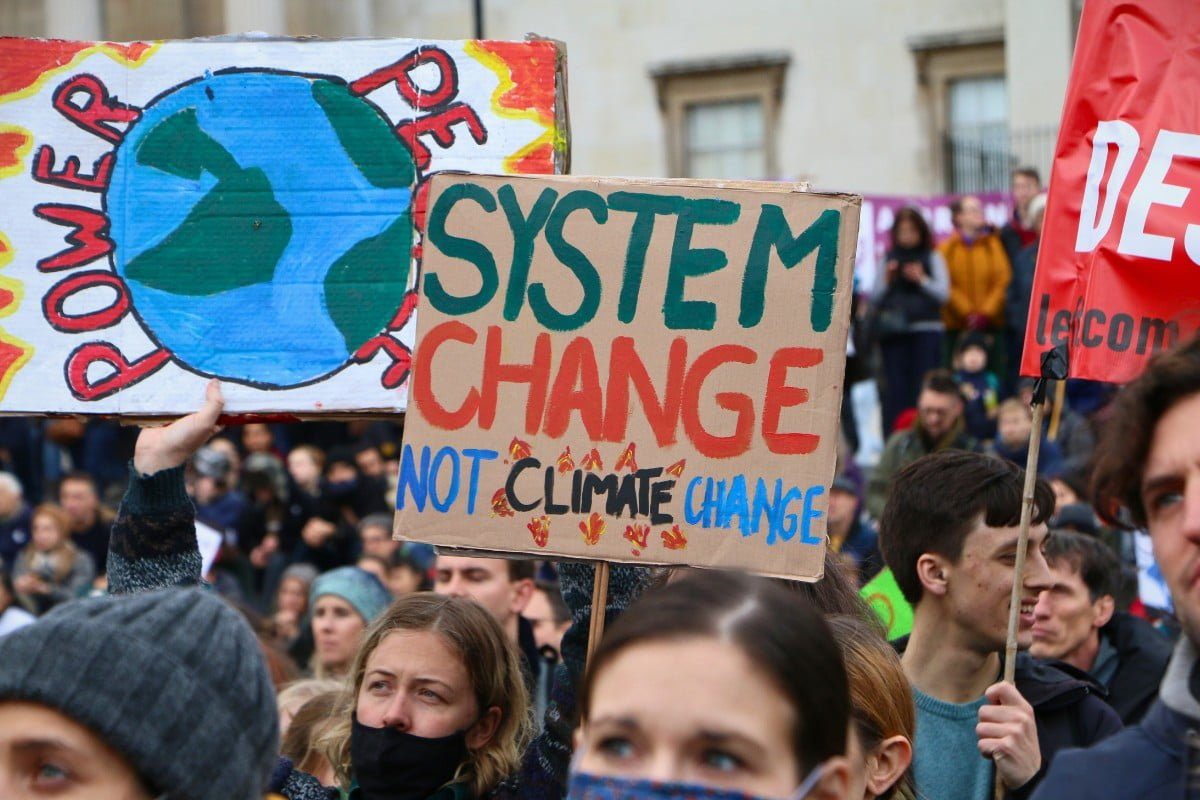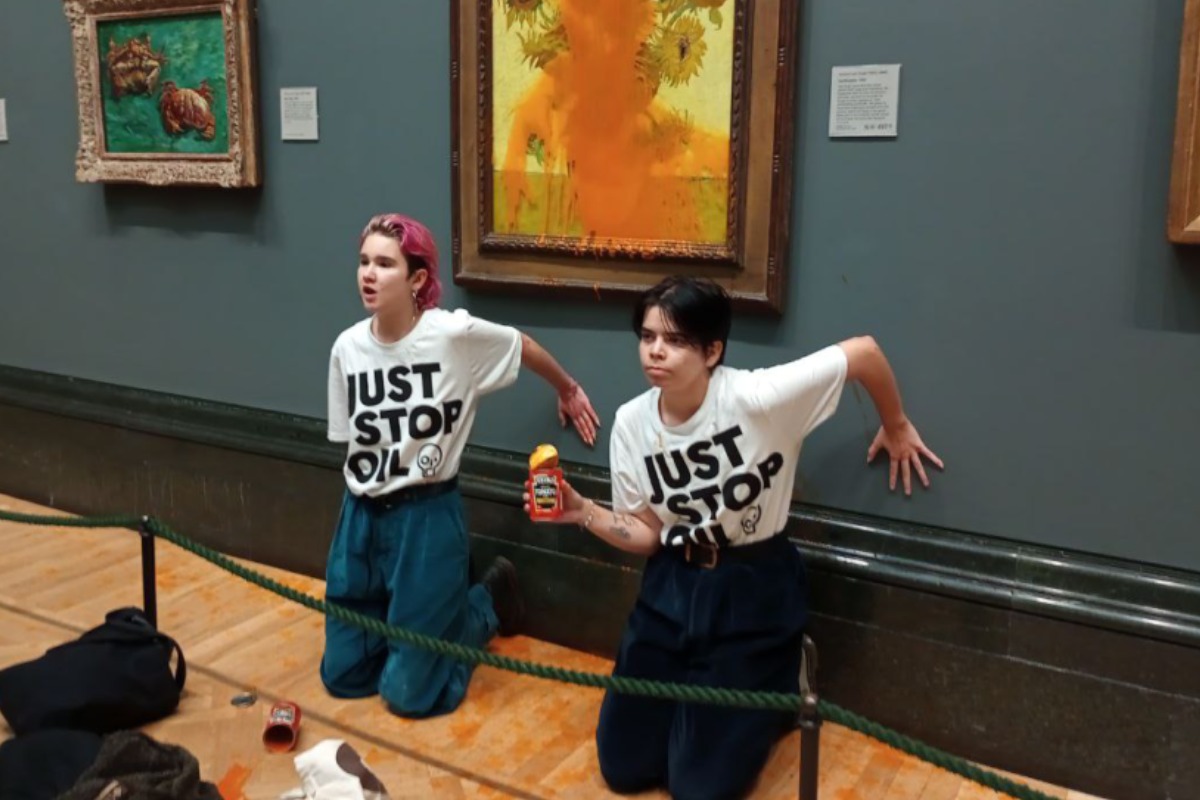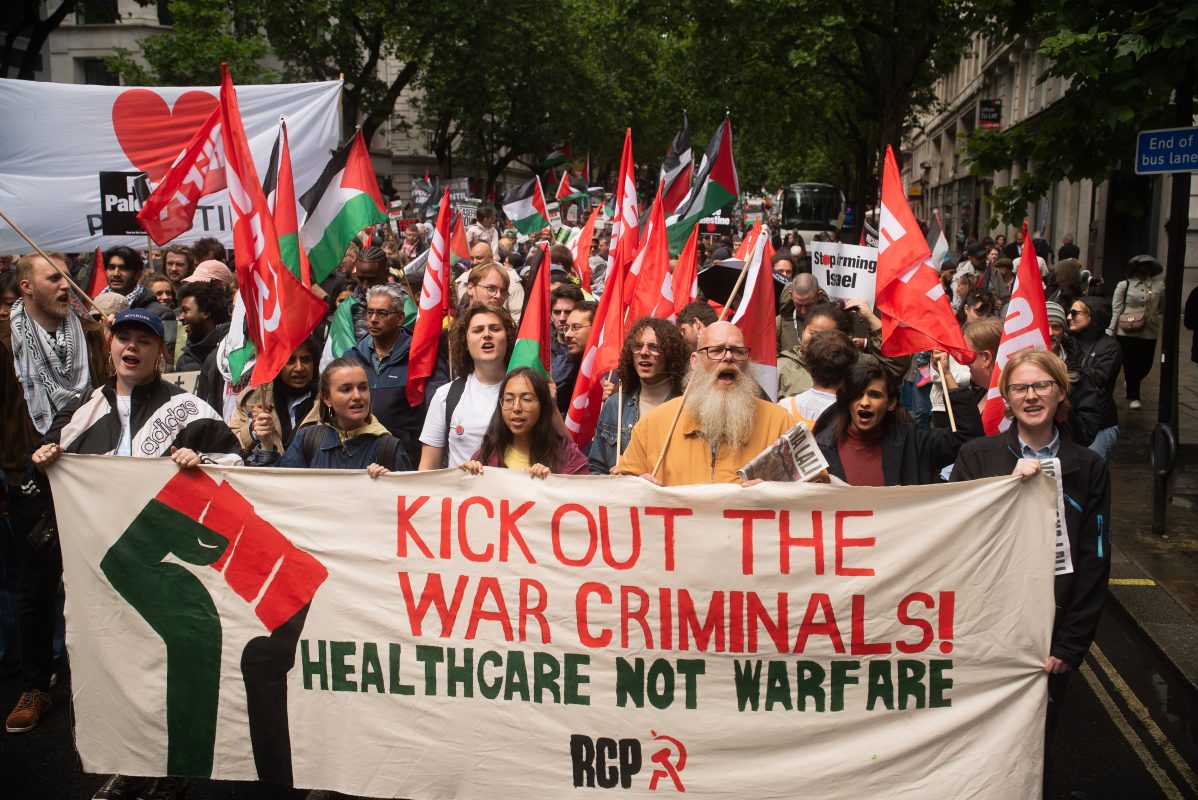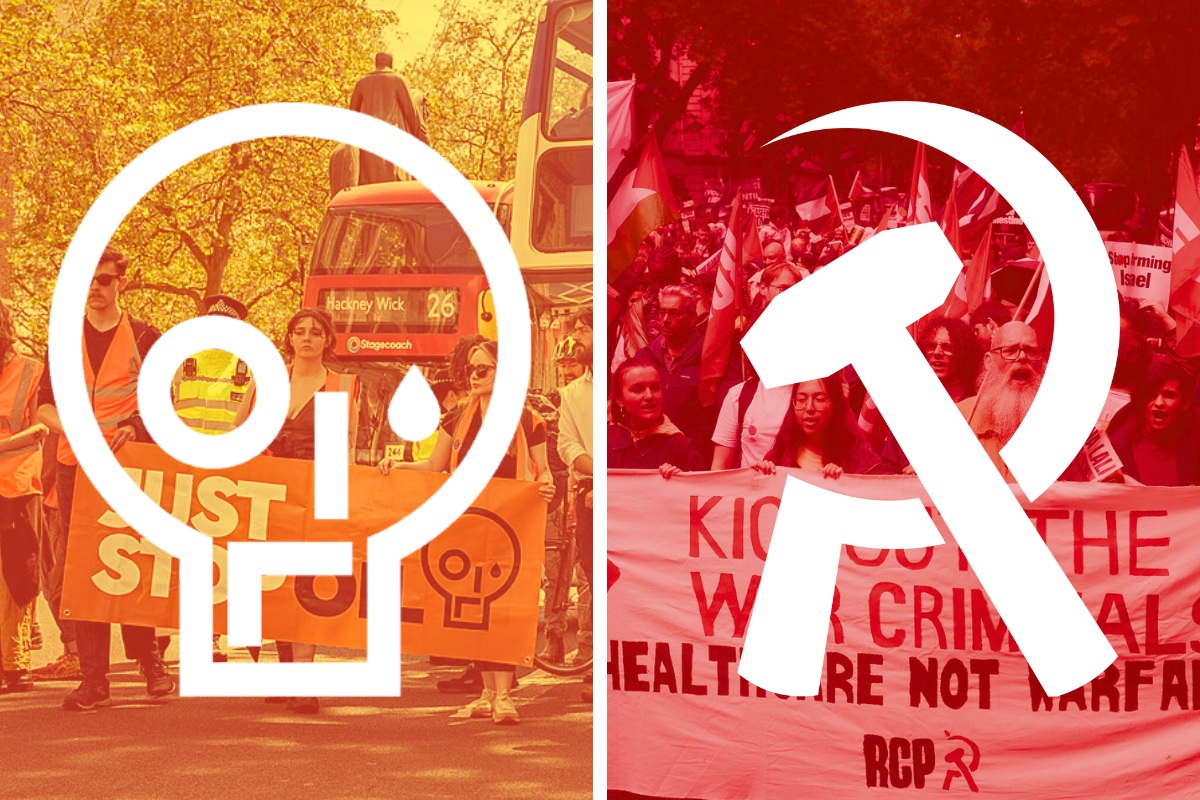I recently read the article ‘Just Stop Oil and Youth Demand: How can we build a mass movement?’ in The Communist, and it resonated with me as someone who has made the journey from Just Stop Oil (JSO) and direct action, to the Revolutionary Communist Party (RCP) and class struggle.
Before I knew anything about politics, I knew the planet was dying. When I was a child, every nature documentary or science programme drilled this into my mind: the collapse of a stable climate was imminent – and it was ‘humanity’ that had done the awful deed.
But ask any average person whether they were destroying the planet, and they would rightly say “no”. So who was this ‘humanity’ that sold the planet down the proverbial river? Spoiler alert: it was capitalism.
I would always say I was on ‘the left’. I had watched a couple of YouTube and Instagram videos explaining some of Marx’s ideas, but I wasn’t actively involved in politics.
I had no idea how someone would go about joining an anticapitalist movement, or even if there was one in Britain. Revolutions for me were a thing of the past to watch in documentaries, not to practise in real life.
Climate breakdown
While at university, I read some climate statistics for a module and was overwhelmed by the scale of the crisis that we are in. The capitalists don’t want people to know the true extent of what they have wrought by allowing emissions to carry on unchecked.
According to scientists, the increase in global temperatures could lead to hundreds of millions – even potentially billions – of people mainly from the global south being forced to flee their homes due to unliveable conditions and massive crop failure.

And that’s not to mention increased wildfires, floods, soil erosion, and ecosystem collapse for all people globally.
I was inspired by videos of protests organised by Extinction Rebellion to find out more about direct action and civil disobedience – tactics that were used by the Suffragettes and within the Civil Rights Movement.
I remember watching the BBC panel show ‘Have I Got News For You’ on TV with my parents. They were talking about how JSO had interrupted a snooker match. Some of the panellists were complaining about how disgraceful it was, and that really rubbed me the wrong way.
How could they think that a snooker match was more important than the breakdown of the climate?
This was just after the COVID-19 lockdown, when the BBC had broadcast emergency updates to the whole country. Does the climate emergency not warrant a similar daily emergency broadcast? Instead, the public has to hear about the climate crisis through a trite comedy panel game show.
Just Stop Oil
Eventually, I decided to join up with JSO. At the time, I felt like they were the only ones who were taking the ecological crisis seriously and were responding in any proportional way to the crisis of the system.
The people I met recognised that voting, writing to your MP, signing petitions, and performative protesting wouldn’t achieve meaningful political change.
The capitalists work hard to make you forget or dismiss the ecological crisis. It’s extremely depressing and terrifying to acknowledge that potentially billions of people could die and nothing is being done about it.

So it was a relief to find a like-minded community that shared my anger and passion. The meetings emphasised building community and trust between each other. Most of my time was spent planning actions, talks, and socials, or engaging with the general public.
JSO’s efficiency and dedication were very impressive. They held regular training sessions, put those trained people into positions of relative responsibility quickly, and trusted them with volunteer roles.
Getting arrested was tough, but manageable. The police station cell was the most difficult part. It was incredibly dehumanising. It was cold, there were no windows, and there were long periods where I couldn’t contact the guards.
The police, in my experience, were either rude or ignored me, acting like mindless drones who insisted they were “just doing their job”.
When I tried to talk to them about the issues, they ignored me, claiming to be ‘apolitical’. This was infuriating considering they were upholding the bourgeois system responsible for these atrocities.
I was arrested multiple times for carrying out direct action with JSO. In fact, even though I left JSO months ago, I was arrested while writing this article, with no evidence, and for no other reason than having previously been involved!
But I don’t regret breaking the law at all. It took me out of my comfort zone, and made me realise that I was a lot braver than I had previously thought.
Doubts
Over time, however, I began to feel like the strategy was a bit aimless. It felt like all I was doing was pleading for the government to listen – like signing a petition with extra steps, and a lot more hassle!
We can make all the demands we want for the government to stop the climate crisis, and sometimes they might even make partial concessions like stopping new fossil fuel licenses, like Starmer has.
But the capitalist class is never going to implement the fundamental changes that we need. The measures they do carry out are just greenwashing the problems elsewhere. Tinkering around the edges won’t do – we have to take what is ours. It’s not good enough to ask nicely.
Additionally, it was clear we weren’t catalysing a mass movement. A change in our economic system requires more than just a small group of activists; it needs the entire class of workers organised to tear down capitalism and begin democratically planning the economy.
More and more people around me in JSO and the Palestine movement were drawing revolutionary conclusions – even within the leadership. I remember many times in the student wing of JSO, discussing and debating what a revolution would look like with other members.
I’m sincerely glad that many comrades in these spaces are drawing conclusions about the need for broadening out our struggle, and fighting for revolution. I expect many of these comrades could make great class fighters.
I eventually made the decision to leave JSO. I didn’t have a strict commitment to peaceful methods like civil disobedience as many others did. And it frustrated me that we wouldn’t consider revolutionary movements from history like the Russian Revolution as inspiration, let alone models for enacting change.
I found that the more I thought about it, the amount of problems that didn’t link to capitalism in my mind were vanishingly few. The reason why we have this crisis in the first place is because of capitalism and the profit motive.
We could have free, clean energy with renewable technology and enough food to feed the whole world population many times over. But under capitalism, that’s simply off the cards. Nothing short of a revolution will suffice!
Communism
For me, joining the RCP was a gradual but rewarding process. I met up with a comrade during a demo in London who was part of the Party, and learned there was a branch where I live in York.
It took me a couple of meetings to be convinced to become a member, and this was only after taking the time to discuss and clarify certain misconceptions that I had.
I thought a centralised vanguard party could only lead to authoritarianism like under Stalin. But learning about the real ideas of Lenin and Trotsky – who stood for the fullest working-class democracy – convinced me that it didn’t have to be that way.
Having faced state repression, I felt a strong rejection of the state. I couldn’t see how a workers’ state could be used for good.
But through patient discussion of Marxist theory and history, I became convinced that these things were necessary.
The RCP’s message was clear and coherent. The members were friendly and willing to chat, and could talk in much greater depth about all manner of subjects than members from other parties and organisations.

They could connect theory to their everyday lives, and came across as personable and normal. I could see that they were practical revolutionaries focused on delivering the ideas of Marx and Engels for the benefit of the working class today – not LARPers in love with the past. The party felt youthful and modern.
In every instance, comrades were generous with their time and didn’t belittle me for being from a different organisation.
Practically every issue that is relevant to working and young people today can be explained through Marxism.
It was incredibly freeing to finally be allowed to paint a complete picture to the people I’d meet on public stalls, rather than the narrow environmentalist framing I would have to do while flyering with JSO.
I would encourage anyone who is part of groups like JSO to continue connecting the dots and join the fight for global revolution. Comrades of the RCP will be more than happy to help you with this.
As the many climate crises bear down upon us, we need the ideas of Lenin to build a party that can put this system out of its misery.
As the Brazilian militant trade unionist and environmentalist Chico Mendes put it: “ecology without class struggle is just gardening.”
Become a class fighter! Join the Revolutionary Communist Party!






